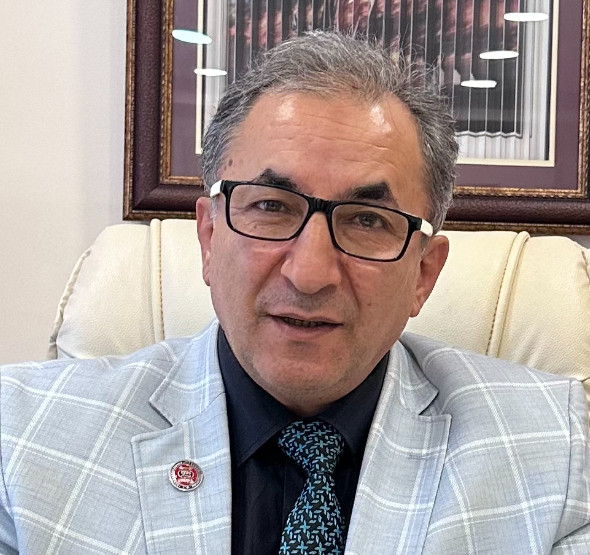Exactly 193 years ago, on April 29, 1827, Algerian ruler Hussein Dey, who was a subject of the Ottoman Empire but was largely autonomous, hosted the French Consul-General Pierre Deval. A very tense meeting between the two ensued. The matter at hand was the accumulated debts owed by France to Algeria:
The French had met their wheat needs from Algeria since the end of the 1700s. The two Jewish merchant families: Bacri and Busnach, who enjoyed significant influence on the Algerian market, provided wheat to the French. Toward the first half of the 1800s, the French fell behind on repaying their debts. In 1818, when the new ruler of Algeria, Hussein Dey (Dey being an adjective given to local administrators in 1818) became aware that the French debts to the domestic market in Algeria were in the millions of francs. Jewish families, like Galata Bankers in the Ottoman Empire, also had creditor ties with the state. Hussein Dey realized that the French paying their debts was vital in terms of keeping the economic balances in Algeria intact. Therefore, attempts were made to pay off the French Government’s debts, but no progress was made.
Hussein Dey lost his temper when he could not get a satisfactory answer from Consul Pierre Deval during the meeting and whacked him in the face with the fly whisk he had in his hand. The Consul was then later removed by Dey’s orders. Hussein Dey was also outraged by the Consul's insulting and unlawful comments regarding Islam and Muslims. The French government requested an official apology from Hussein Dey for the "Fly Whisk Incident". When Dey refused, the French launched a comprehensive siege against Algeria. After the three-year siege, in 1830, French soldiers occupied Algeria and effectively dominated the country. In 1834, the entire territory of Algeria was under the control of France.
During the French occupation of Algeria, tens of thousands of people lost their lives, religious places and places of worship belonging to Muslims were destroyed, and even cemeteries were razed. In Algeria, where farmers and workers from France and other European countries flocked, the local population also suffered significant economic losses.
Entering the twentieth century under French occupation, Algeria started to press for full independence at the end of a long and painful process with the end of World War II. The first protests organized by Muslims demanding freedom on May 8, 1945 were the continuation of the path paved by Emir Abdulkadir, who fought the independence war against the French nearly 100 years ago. The protests, which turned into a conflict after the savage intervention by French soldiers, resulted in the death of tens of thousands of Muslims in the weeks that followed. The doors leading to the independence of Algeria were flung wide open.
The National Liberation Front (FLN), the foundations of which were laid in the Egyptian capital of Cairo in the fall of 1954, by Ahmed bin Bella (1916-2012), who would become the first president of Algeria, and his companions. Bella was another impetus for the journey toward independence. FLN's attacks on French soldiers and Western civilian targets in Algeria escalated the conflict. France responded to each attack with a more ferocious counterattack. Hundreds of thousands of Algerians died at the hands of the French in the violence that raged on until Algerian independence.
With the independence of Morocco from France in 1956 and the election of Charles de Gaulle as president in 1958, calls for the independence of Algeria became irrepressible. De Gaulle officially announced in 1959 that Algeria should now be granted the right to self-determination. The irreversible path had already been ushered in. However, there were those who argued that the French state should not relinquish its control over Algeria. In April 1961, a group of generals even carried out a failed attempt to overthrow Charles de Gaulle.
After long negotiations between the French government and FLN representatives, Algeria would then gain its independence with a referendum held on July 1, 1962. However since then, France’s influence in Algeria would continue unabated, and the French would never stop interfering in the internal affairs of their former colonies.
This is what a fly whisk inflicted upon Algeria…




